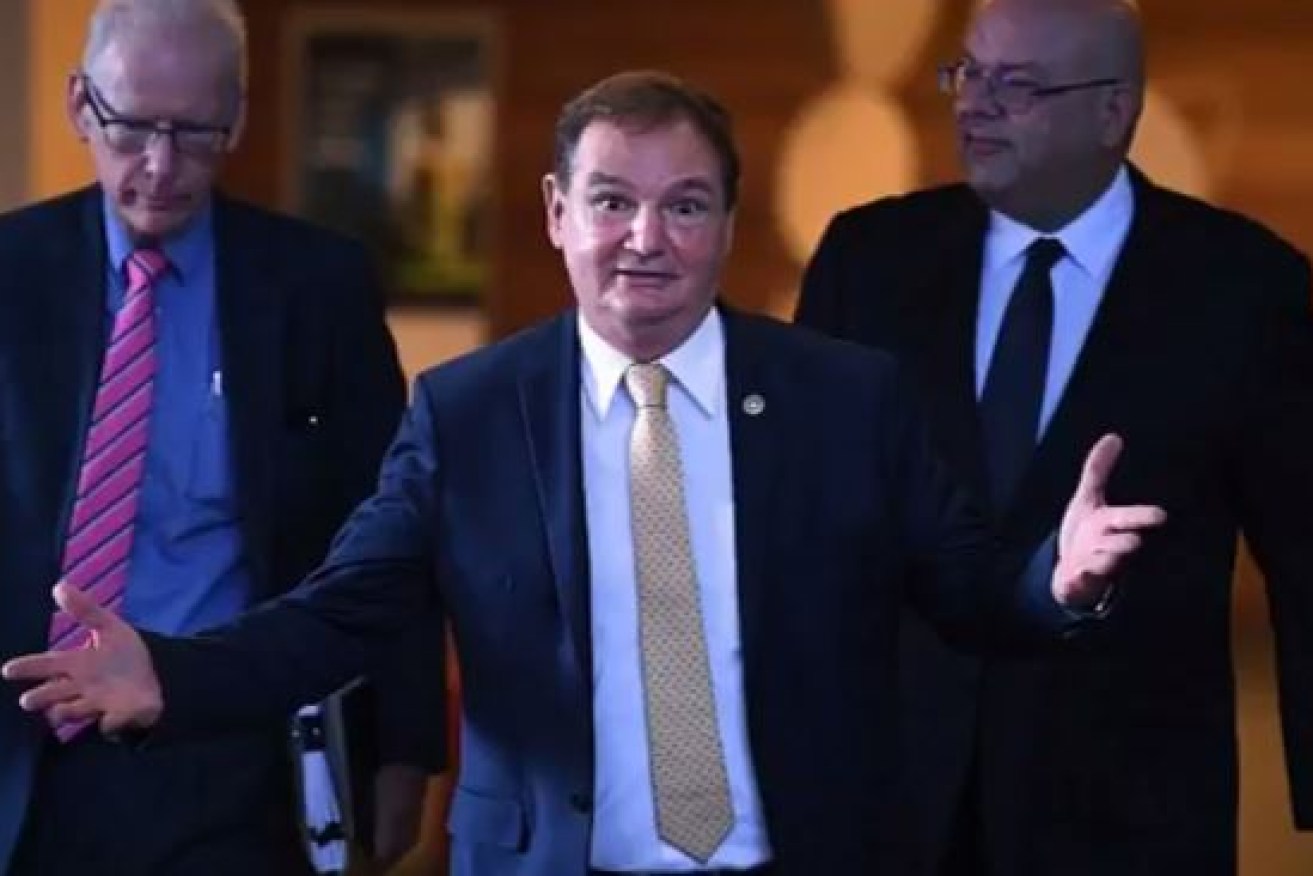Corruption boss lays down the law to our newly minted mayors
Queensland’s freshly minted mayors have been schooled by the state’s top anti-corruption boss on keeping their noses clean as local councils prepare for a new era of governing in the age of physical distance.


Former Ipswich mayor Paul Pisasale.
Mayors preparing for the next four-year term have been emphatically warned by Crime and Corruption Commission chairman Alan MacSporran not to put their private interests ahead of the public interest.
Drawing on recent corruption scandals at Ipswich, Logan and Moreton councils, which he described as “troubling conduct”, MacSporran cautioned elected officials to be aware of their legal and ethical obligations.
“This includes ensuring all decisions are made transparently and in the public interest,” he wrote.
“Having a perceived, potential or actual conflict of interest is not in itself a problem. It is how it is declared and managed that is important.
“In the CCC’s experience, not managing these situations when they occur in the first place often leads to worse outcomes.”
He further highlighted that crime and corruption would prosper if councillors put their private interests before the interests of the public.
“It is that simple. Building strong cultures of integrity is the single most significant action our public sector leaders at all levels can take to address corruption,” he wrote.
“Preventing corruption is always better than a cure, or in our case enforcement of the law.
“Newly elected councillors can learn from what happened to some of their predecessors, and not make the same mistakes.”
Voters in areas once plagued by well-publicised corruption scandals such as Ipswich and Logan, have placed overwhelming trust in their new representatives, giving Teresa Harding and Darren Power respectively a massive share of the vote against their mayoral rivals.
The ride has not been as easy for challengers at Moreton Regional Council, where former mayor Allan Sutherland was dismissed last year after police laid charges of misconduct while in public office.
Candidate Peter Flannery is just ahead of Chris Thompson on 30.58 per cent of the vote, with 54 per cent of the ballots counted. Scrutineers say the result is still too close to call.
Ipswich Council has been given further support to manage the transition to sound governance with the Palaszczuk Government extending the term of Steve Greenwood, who has been serving as the council’s acting interim administrator.
Local Government Minister Stirling Hinchliffe said Greenwood’s appointment as an advisor for 12 months would support a “seamless transition to a fully elected council for the people of Ipswich”.
Greenwood said he looked forward to supporting the new council.
“It’s important we maintain the integrity of the substantial reforms achieved during the period of administration,” he said.
As counting continues after Saturday’s statewide local government poll, 21 contests remain in limbo as historically high numbers of postal ballots are received until the April 10 deadline.
Voters who braved the polling booths amid heightened fears of coronavirus transmission, in concert with ballots lodged during pre-polling, have returned 35 incumbent mayors, including 14 unopposed, and 21 new mayors, with a further 21 contests still “too close to call”, according to the Local Government Association of Queensland.
Of those 21 undeclared contests, 12 incumbent mayors have fallen behind on the early counts and are now in danger of losing their positions.
As reported yesterday, one of those councils that remains on a knife-edge is Livingstone Council north of Rockhampton, where long-serving mayor Bill Ludwig is in a fight to hold on against rival Andy Ireland.
MacSporran’s warning comes as councils take their first steps towards working remotely, mirroring the changes in workplace arrangements happening across Australia due to coronavirus pandemic lockdowns.
Hinchliffe said the regulation change meant councils could get on with the job of providing services and responding to the needs of their communities without the need to meet face to face.
“The change to the regulation means that council meetings can be held through teleconferencing,” he said.
“We’re seeing changes at many workplaces and councils are no different.
“At a time like this, it’s important that we can be as responsive and flexible as possible.”












